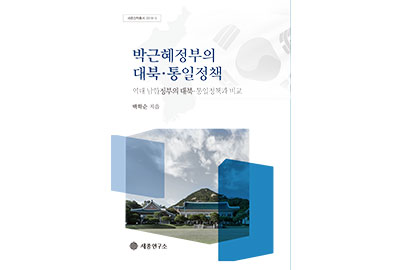President Park Geun-hye stayed in power for three years and nine months, from the inauguration on February 25, 2013 to the impeachment of the National Assembly that suspended presidential powers on December 9, 2016 due to the ‘influence-meddling scandal.’ This study analyzes and evaluates the ‘Trust-Building Process on the Korean Peninsula,’ the Park Geun-hey administration’s policy on North Korea and unification. Through the lens of functionalism, the study examines the Park Geun-hye administration’s identity, interests, and policies in the context of inter-Korean relations and unification and elucidates their nature and features by comparing them to previous South Korean administrations. The Park Geun-hye administration’s identity on inter-Korean relations and unification could be assessed as an ‘internationalist’ identity, ‘confronting/excluding’ North Korea at a very strong level. Compared with the previous administrations, the Park Geun-hye administration’s identity resembles that of the Lee Myung-bak administration, to the extent of calling them twin administrations.
This study views the Park Geun-hye administration’s policy regarding North Korea and national unification as a culmination of the interplay between the policy actors and the policy environment that the face. Hence, it examines through what kind of interaction with the domestic and international environment did President Park Geun-hye, as a policy actor, and her administration’s ideology, identity, and interests ended up with the policies they pursued. The study precisely analyzes and explicates what procedures did the ‘Trust-building Process on the Korean Peninsula’ undergo - how it was formulated and reformulated from time to time taking the steps ‘impossible to implement → uncertain to advance → vanished → de facto abandoned → completely abandoned.’ President Park initiated the ‘preparation for unification’ in earnest less than a year since she inaugurated. She proclaimed the notion of ‘unification is a bonanza’ on January 6, 2014, stated plans to establish the Presidential Committee for Unification Preparation on February 25, announced that she will be chairing the committee on March 14, and officially launched the PCUP on July 15. Unlike the ‘Trust-building Process on the Korean Peninsula’ that it officially and publicly proclaimed as its policy regarding North Korea and peaceful national unification, the Park administration pursued ‘preparation of unification’ for ‘unification by absorption’ and not a peaceful unification. As the administration took on groundworks for unification (by absorption), the Trust-building Process on the Korean Peninsula that aimed at improving and normalizing inter-Korean relations and achieving peaceful unification was replaced with the policy on preparations for unification (by absorption). The Trust-building Process on the Korean Peninsula and the preparation for unification (by absorption) were mutually exclusive and inversely proportional. The incongruity in unification policy between what is proclaimed and what was actually pursued marred the credibility and relevance as well as effectiveness of the Trust-building Process of the Korean Peninsula and sealed the fate of the policy without any meaningful outcome. In the ‘conclusion’ part, the study summarizes the characteristics and nature of the Park administration’s policy on North Korea and unification. Additionally, it elucidates the policy implications for the Moon Jae-in administration’s policy on North Korea and unification.
Volume: 2018-5
Publisher: The Sejong Institute
Publication Date: April 5, 2018
Paperback, 308 pages

